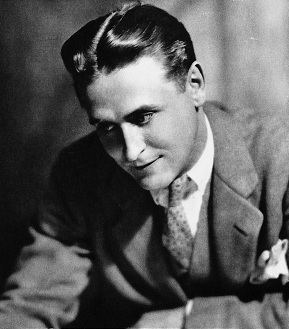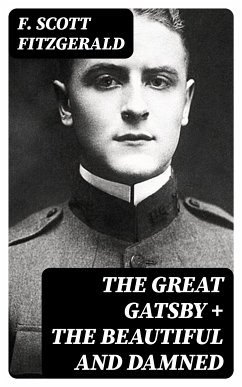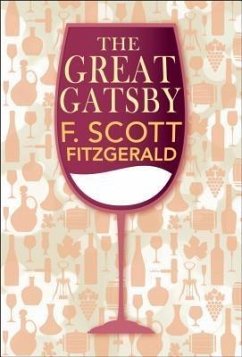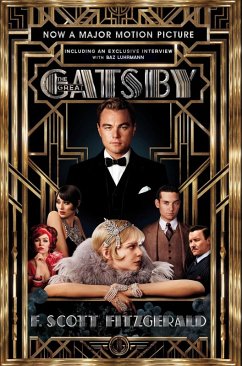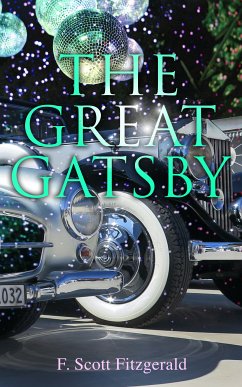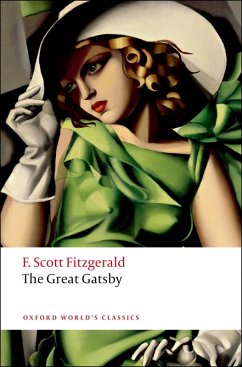
The Great Gatsby (eBook, ePUB)

PAYBACK Punkte
0 °P sammeln!
F. Scott Fitzgerald's "The Great Gatsby" is a quintessential work of American literature, set against the glittering backdrop of the Roaring Twenties. This novel deftly explores themes of ambition, love, and the elusive nature of the American Dream through the tragic figure of Jay Gatsby, whose lavish parties and unyielding hope for the impossible propel the narrative. Fitzgerald's lyrical prose and vivid imagery create a world that is both enchanting and haunting, revealing the stark contrast between social stratification and the pursuit of happiness. Through a complex interplay of symbolism ...
F. Scott Fitzgerald's "The Great Gatsby" is a quintessential work of American literature, set against the glittering backdrop of the Roaring Twenties. This novel deftly explores themes of ambition, love, and the elusive nature of the American Dream through the tragic figure of Jay Gatsby, whose lavish parties and unyielding hope for the impossible propel the narrative. Fitzgerald's lyrical prose and vivid imagery create a world that is both enchanting and haunting, revealing the stark contrast between social stratification and the pursuit of happiness. Through a complex interplay of symbolism and character development, the novel critiques the moral decay hidden beneath the era's opulence and superficiality. Fitzgerald, often regarded as one of the leading figures of the Jazz Age, drew inspiration from his own experiences and observations of high society, including his tumultuous relationship with Zelda Sayre. His keen awareness of societal issues and personal struggles shaped the novel's exploration of wealth, class, and disillusionment, serving as a reflection of his life in the vibrant yet tumultuous landscape of post-World War I America. "The Great Gatsby" is highly recommended to readers seeking a profound exploration of identity and aspiration. Its rich tapestry of themes, unforgettable characters, and Fitzgerald's masterful prose make it a cornerstone of American literature, inviting readers to reconsider the depths of their own desires and the societal limits that shape them.
Dieser Download kann aus rechtlichen Gründen nur mit Rechnungsadresse in A, B, BG, CY, CZ, D, DK, EW, E, FIN, F, GR, H, IRL, I, LT, L, LR, M, NL, PL, P, R, S, SLO, SK ausgeliefert werden.




